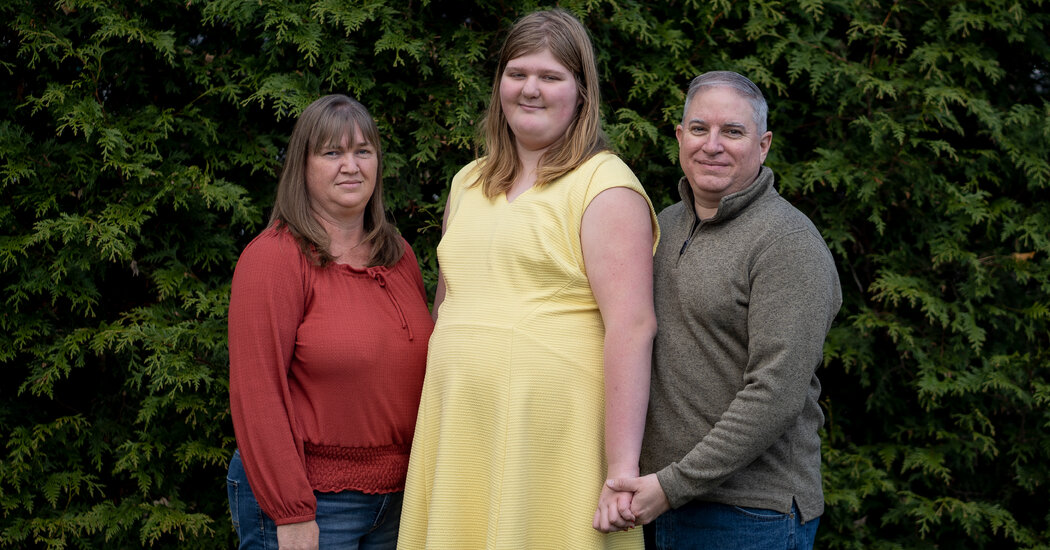
The Benedicts still find happy moments in their home. Sometimes they play Uno together. Sabrina brims with enthusiasm as she shows her mother ballet moves, or talks about upcoming holidays, her favorite foods or her day at school. Or they flip through photo albums, remembering a vacation to Assateague Island.
One afternoon last year, Sabrina sat at the kitchen counter, drawing an intricate blueprint of a house where she imagined one of her teachers lived. When Crystol arrived home, Sabrina ran to greet her. Then she flopped down on the sofa in anticipation of a massage. Her mother knelt beside her. Crystol pretended to make a pizza on her daughter’s back — kneading dough, spreading sauce and sprinkling cheese.
But within the hour, Sabrina would be overwhelmed with disappointment, frustration or an emotion she could not name. She would stomp her foot, hard. And begin to wail.
“Do you need help?” her father asked, his voice even, his eyes looking away.
Between wails, Sabrina announced, “I’m mad.” But she shut down her parents’ efforts to talk to her. “I hate you,” she said. “Go away!”
At times like this, her mother encourages her to breathe in and breathe out. “Smell the roses and blow out the candles,” she says. And her parents stand there frozen, waiting for what happens next.
When Crystol first saw Sabrina, asleep in a bassinet at the hospital, she cried with happiness. It was July 2008. Unable to have a baby on their own, she and Jeremy had become foster parents, planning to adopt. They brought Sabrina home when she was just a day and a half old.
They were undaunted by what the foster care agency told them: Sabrina’s biological mother and father both had intellectual disabilities, and the father had been arrested on sexual assault charges.




